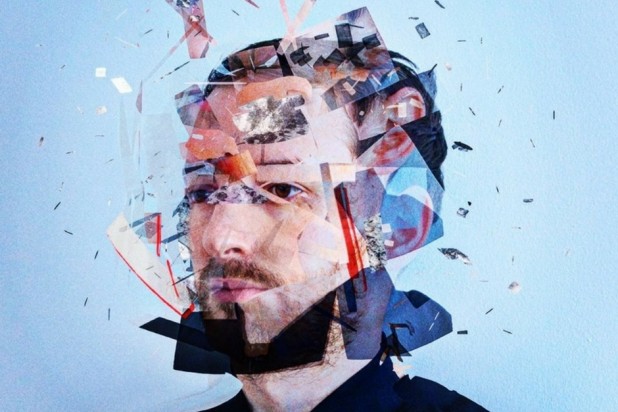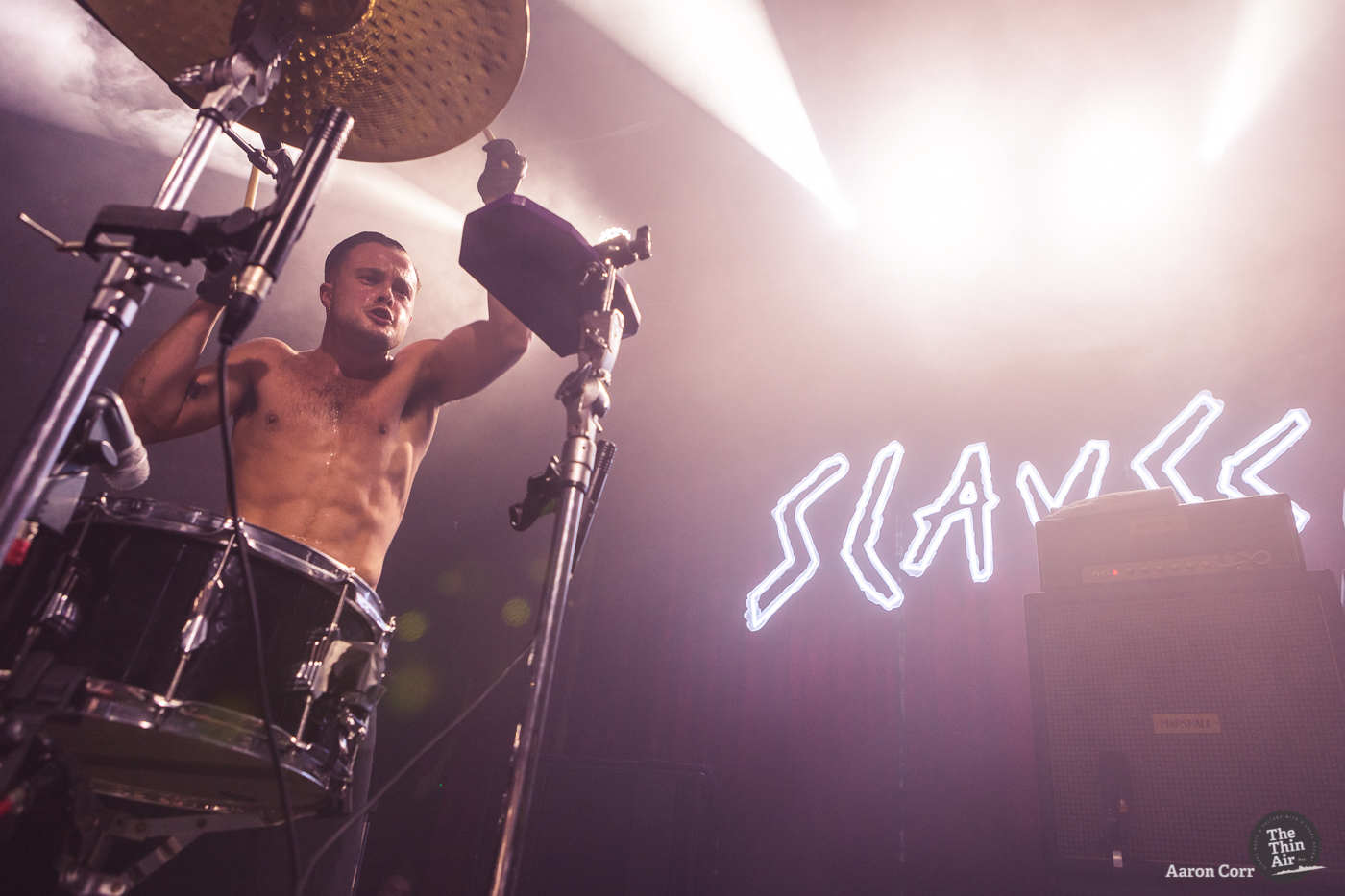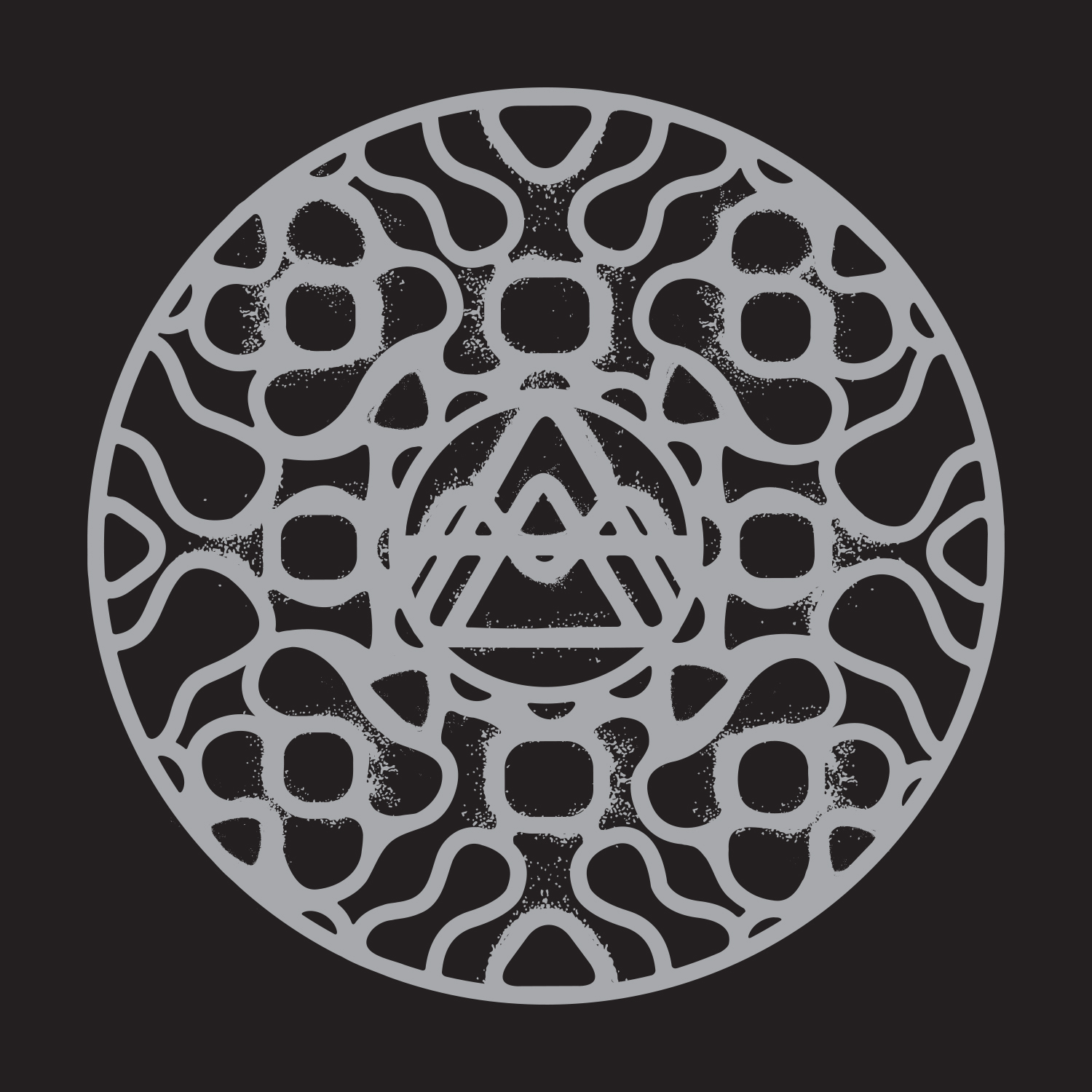Merging ambient textures and modern classical elements with the banging clamour of accessible dance beats, Belfast born Electronic composer Max Cooper has been studiously perfecting his brand of music for over 10 years now. Drawing on his deep rooted interests in science and technology, the artist has created a uniquely cerebral body of work, built upon cavernous soundscapes that alternatively surge and flutter with elemental energy.
Conceived in relative isolation and primarily concerned with the infinitesimal intricacies of the unknowable human mind, Max Cooper’s latest offering, One Hundred Billion Sparks is, suitably, both epic in scale and minutely detailed; a tour de force of high minded ideas, delicately crafted atmospheres and emotionally driven melodies.
Ahead of his live show in Dublin’s Button Factory this Friday 16th November, James Cox caught up with Cooper for in-depth, vividly detailed chat around his intense creative process and the complex ideas that lie behind his immense work. We also get get a sneak peek into what the future holds in store for the unique artist…
Your latest work is titled One Hundred Billion Sparks, a poetic description of the neurons that fire and connect to create brain activity. Do you feel that this idea of something mammoth and unknowable developing from particles and minute details is something you try and convey in your music? Are you somebody who tends to view the world from this very granular perspective?
“I do love tiny musical structures, putting little seething clicks and synth parts in there behind the main elements of each track. I like the idea that the more closely you listen, the more you’ll find hiding in there in the music, a scale free form, like nature, which always has structure within structure. So that was part of the draw to the idea, which we also tried to communicate with the album artwork with it’s countless fragments and networked structures yielding emergent form.
“But the main draw to the idea was the wider question of what we are and what creates our experience… That was where I could find all sorts of rich ideas for drawing feelings and visual scenes during the creation of the music and the video concepts. Those go far outside of reductionist science related ideas, into more humanised high level aspects of this bundle of sparking neurons.
“As for my worldview, coming from a science background I do have a tendency to want to know about the building blocks, but then artistically I need to work with feelings and aesthetics, so that forces me to view things from a different perspective. Both are complementary, each useful in different circumstances. My main interest is about how they overlap and inform each other.”
The complexities of human consciousness is about as gargantuan a theme as you get when it comes to album concepts. How do you think this theme has manifested itself in the album and can you discuss any other key themes that fed into the making of the record?
“I avoided getting bogged down in consciousness and the ‘hard problem’ for the most part. I just involved one idea really: Tononi’s ‘Phi‘, which attempts to put the issue on firmer grounds than its competitors, providing a falsifiable route forward.
“The rest of the project involves first foundational issues around logic and computation, the building blocks of thought, like Godel’s incompleteness and Wolfram’s Rule 110. Then ideas around the creation of meaning and substance in a thinking machine, like reciprocity and emptyset. And finally high level emergent properties of brains like memories, identity, hope and love.
“You’re probably wondering what all that can have to do with music? The ideas were chosen for two main reasons. One, that they involve beautiful visual ideas which I could then collaborate with visual artists on for the music videos and live show content, and Two: that the ideas are full of feeling. By which I mean, thinking about them makes me feel things, which in combination with their visual aesthetic form, provides all the material I need for making music.
“Taking one example, the first track/idea, Godel’s Incompleteness. This theorem proves that all rich logical systems of reasoning can never prove all true statements in these systems. It puts a limit on what we can know with certainty, and it’s a mind boggling example of how someone can use nothing more than logic to prove some vast general concept about all of knowledge via formal proof. For me that is full of feeling, excitement, confusion and awe. All things I tried to convey in an expansive and incomplete piece of music comprising only 3 synth chords and nothing more, an attempt to render us as a tiny speck lost in this expanse of the unknowable and incomprehensible. Hopefully that explains why I like to work with these sorts of ideas, they’re an absolute pleasure to spend time thinking about, so why would I bother thinking about anything else when I’m free to choose.”
You’ve described yourself as a rather rudimentary musician when it comes to playing traditional instruments such as the piano. How do you think this has affected your composition style? Do you think this lack of classic musical technicality has been a hindrance or a blessing in that respect?
“It’s a hindrance in terms of human expression. It means I have a very long process of creating each piece of music in order to try and get across a feeling of movement and humanity behind the form, which is so naturally delivered by live instrumentation. When you hear a piano or guitar or drums being played, there is rich information in the ‘errors’, the deviations from the precise, sometimes written, form of the music. We pick up on all those small deviations subconsciously, and musicians use them to add extra layers of communication, so that when they’re not there a piece can sound devoid of life, even when we don’t know why. I’ve had to try and develop my own means of adding those extra layers of communication, with tiny sounds and loads of modulation and tinkering with audio editing and things like that. So in the end, as with most things, there are pros and cons, but you can do a decent job either way if you put the time in.”
Much has been made of your scientific background and you are well known for employing highly technical methods in your compositions. Do you think your background studying Computational Biology helped to open up the far reaching uses of technology to you and to what extent do you feel your music to be inseparable from the tools you use?
“I don’t use anything too technical for my productions generally. Lots of messing around for live tools and making a complex half controlled mess. Rob Clouth is one person using highly technical methods in his productions, he writes a lot of the plugins and synthesis tools he uses to create his music, so it goes way outside the normal realms in the results. That’s the sort of work I aspire to, and am going down that road with the development of some custom tools, but I’m a long way behind many others on that front.
“My background in Computational Biology links in through the interests I described earlier, through the love of abstract systems, and probably as much as anything through the self-belief that sitting in front of a computer for long enough messing around can yield something useful.
“The abstract system thing is interesting though. In science it’s obvious, we have, in the case of molecular biology, some tiny system with its own rules, which we’re tinkering with theoretically in the case of systems biology, or experimentally in the case of normal biology, to try and get an understanding of, and intuitive feeling for, how it works. With music I find something comparable going on with the abstract system of a piece of music. If I change one element, the other elements must change too in order to make it function as a whole. Unless I find just the right new element which functions in concert with the rest.
“Pieces of music also feel like they have a logical structure, I know there is the correct part to add next, or I can hear that a chord progression or melody is not correct. I don’t mind the notes are in the wrong scale or something, it’s more subtle than that, it feels like it has a rich logical structure of rules, but one that I can only access intuitively rather than can make explicit in the case of science. I think it’s all about my subconscious musical rule set, which we all have, and which defines how we react emotionally to different pieces of music. That’s where this abstract system is contained, and where I’m getting messages about what is or isn’t correct. That’s my whole way of writing music really, just relying on feeling what is the right way forward. It’s a fun way to work, although no doubt I miss out on some avenues I could use if I approached things from a music theory perspective.”
Though your music has consistently evolved through the course of your career you’ve stuck steadfastly to your electronic guns. Is the idea of a solo piano or traditionally orchestrated performance or album something you are interested in pursuing in the future?
“Yeah I’ve done that with Tom Hodge. I think our ‘Teotihuacan’ Pt1 and Pt2 tracks are probably some of the best I’ve been lucky enough to be involved with, and comprise piano only for Pt1 and piano and cello only for Pt2. It’s definitely something I’ll pursue further yes, Tom and I have new things on the way!”
Your music clearly springs from pretty high minded ideas but remains undeniably danceable and ‘Club ready’. Is making sure your music has popular club appeal something that’s important to you?
“I guess the new album is about half and half on content which can or cannot be played in clubs. DJs generally don’t play my stuff though, even if you can hear the club aspects in there, I mix my melodies louder and drums quieter than normal club music so my stuff sounds a bit flat in a normal club context (but works better at home). It’s always a balancing act with music, you can’t do everything at once. But live settings are still important for me, and I do love clubs and creating atmospheres in that setting, so it’s something still in there in my music for now.”
You’re currently based in London having relocated in 2007. How do you feel your career and musical style have been shaped by London’s musical ecosystem and how do you think it would have differed had you set up shop in your hometown of Belfast? Do you have any advice for fledgling Irish musicians toying with the idea of jumping ship to the more established scenes in the mainland UK?
“My musical education in terms of DJing and the whole club thing came from Nottingham, where I was between ’99 and ’07. I used to be a resident at an awesome techno night called Firefly, at the Marcus Garvey and The Bomb mainly over the years. And I also used to go to a lot of drum & bass and hip hop/turntablist events, along with the old mad Passion Coalville events, Renaissance, and all of that. It was a fun time, I just went out all the time and absorbed as much as I could, did loads of crappy gigs and learnt how to do warm up sets at the great Firefly events I played.
“The major difference from Belfast at that time was the wider variation in electronic music events I had access to, as Nottingham had a bigger immigrant community at the time bringing in a wider range of events, and we could more easily travel to other cities like Sheffield, Birmingham and Manchester for everything going on there. Sometimes I think nothing really started for me until I started writing music, but actually all that time and all those parties gave me the grounding I needed to make music, all I had to do at the start when I wanted to make DJ tracks was think about ‘What would I want to hear if I was stood on the dancefloor in my favourite club?’
“Belfast had a big influence on me too though. We had a massive group of weekly club goers and yearly two- weeks-in-Ibiza-take-10-years-off-your-life-every-time-crew, haha. I was obsessed with DJing and electronic music before Nottingham. The whole club scene brought me out of my shell to some extent. I was an immigrant of sorts myself in Northern Ireland, with Aussie parents, and I always found it difficult to fit in amongst all the madness going on in the ’80s etc. But then I found that in clubs all of that disintegrated.”
You’ve spoken in the past about your willingness to play in conflict areas traditionally absent from typical touring schedules, even describing Juarez as one of your favourite places to play. Is your willingness to embrace these occasionally notorious locations perhaps a result of your childhood in troubles-era Belfast? Are there any locations off the traditionally beaten track that you’re hoping to perform in in the future?
“Yeah I could see how all the bad press in NI around then gave everyone outside a skewed idea of what it was like. So when I thought I might be holding my own popular press skewed idea of somewhere, I would go and see for myself. Most places turned out to be great, with the occasional scary one where I realised I’d been a bit of an idiot. All good though, no kidnappings to date.
“As for places I’d love to go next: Peru and Brazil. I haven’t played there yet. And South Korea, China and New Zealand. I usually don’t get to see the nice parts when I visit for gigs, but I enjoy getting dropped into the local life to get a feeling for how people live there.”
Your sound seems to incorporate a dizzying array of influences from modernist classical and post rock to left of field dance and techno. Are there any artists whose work you drew upon during the making of this album that you’d like to recommend to our readers?
“Lusine, Bing and Ruth, Arovane, Synkro, Rival Consoles, Ben Lukas Boysen, Brecon, Com Truise, Rob Clouth.”
Finally, what are your plans post album release? Will we be able to catch you performing in Belfast anytime soon?
“I’m touring the new album audio visual show now mainly, experimenting with gauze screens and 270 surround visuals a lot, and working on the next big projects, the Philip Glass reworks project with Bruce Brubaker for May next year, and my ‘Yearning for the Infinite’ Barbican show for next September…..loads of work to do!
“And yes, I hope I’ll get to Belfast for this album tour sometime, we’re still booking it in as it will run right through next year I expect, so hopefully someone there will be interested in hosting me. If not I’ll be getting back for a visit anyway, I’m long overdue. Too much time in London slowly sucks out my soul so I need to get back every so often to recharge. It’s all about the hills and sea and nature there for me. It’s so easy to take that stuff for granted when you live there, after ten years in London I miss it. “






